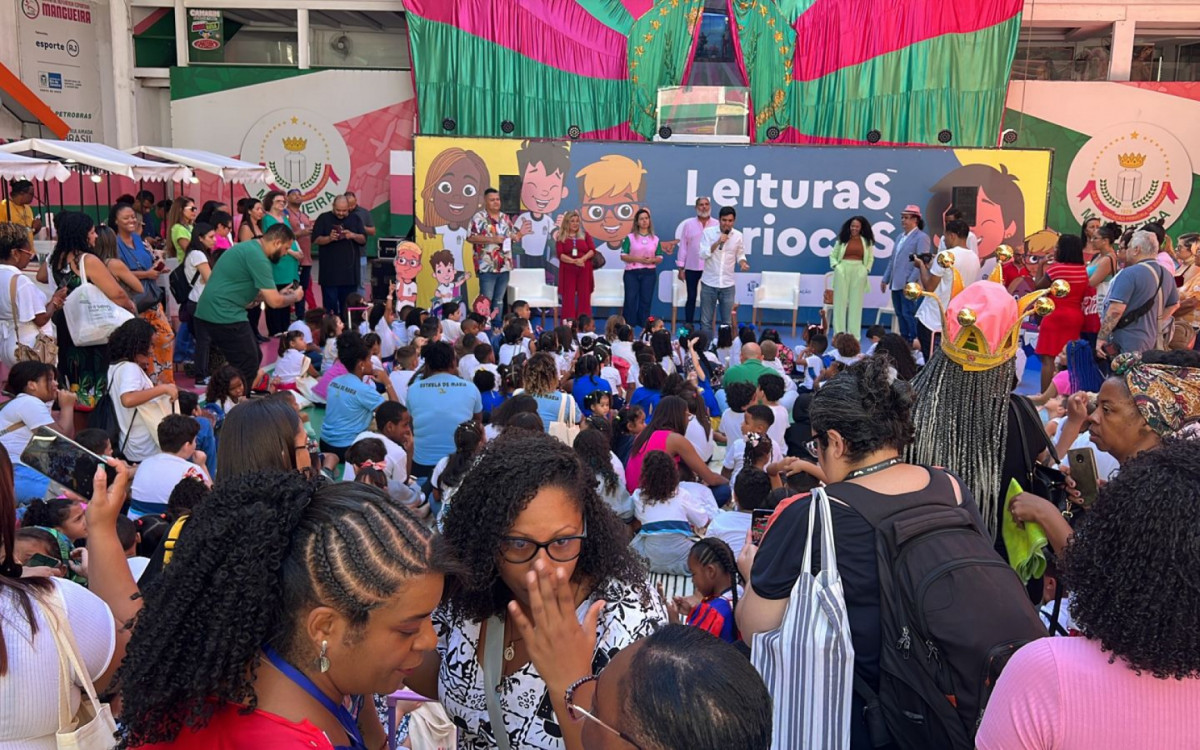
Clique aqui para Português
February 9, 2024—Afro-Indigenous Brazilian literature is a growing source of inspiration for samba schools as they organize Rio de Janeiro’s carnival parades. During the 2024 carnival, which starts today, a number of traditional samba schools will celebrate Brazilian Afro-Indigenous literary works in the Sambadrome. Portela created its plot based on A Color Defect, a novel by Minas Gerais-born writer Ana Maria Gonçalves. Grande Rio prepared a parade inspired by the Tupinambá myth addressed in the book My Destiny Is to Be a Jaguar, by Rio-born writer Alberto Mussa. Imperatriz Leopoldinense, the current champion, will take the pamphlet The Will and Testament of Esmeralda, the Gypsy written by Paraíba-state-born poet Leandro Gomes de Barros to the Marquês de Sapucaí arena. And União da Ilha will compete with the plot Doum and Amora, based on the children’s book Amoras by São Paulo rapper Emicida, on carnival Saturday. There are also schools that chose to speak about foreign literary works and their impact on Brazil, such as Porto da Pedra, which will be parading the El Nuevo Lunario Perpetuo, a 14th-century Spanish almanac.
‘I Was Born Quilombo and Brought Up Favela’
Brazil was the last country to abolish slavery, in 1988. Despite such atrocity, the country was also the stage for intense resistance to this regime, such as within its quilombos, territories of anti-slavery and anti-colonial resistance led by Black men and women, that still occupy important expanses of the Brazilian territory. Since then, the definition of quilombo has been updated. The thinker Abdias do Nascimento expanded the concept of quilombos in contemporary times, developing the premise of quilombismo, which advocates for the affirmation and celebration of Black history and culture in Brazilian society. In this way, places where Black knowledge, ways of life, epistemology, and ancestry have been preserved and resist to this day are considered contemporary quilombos and include Afro-Brazilian religions, afoxés, favelas, and samba circles.
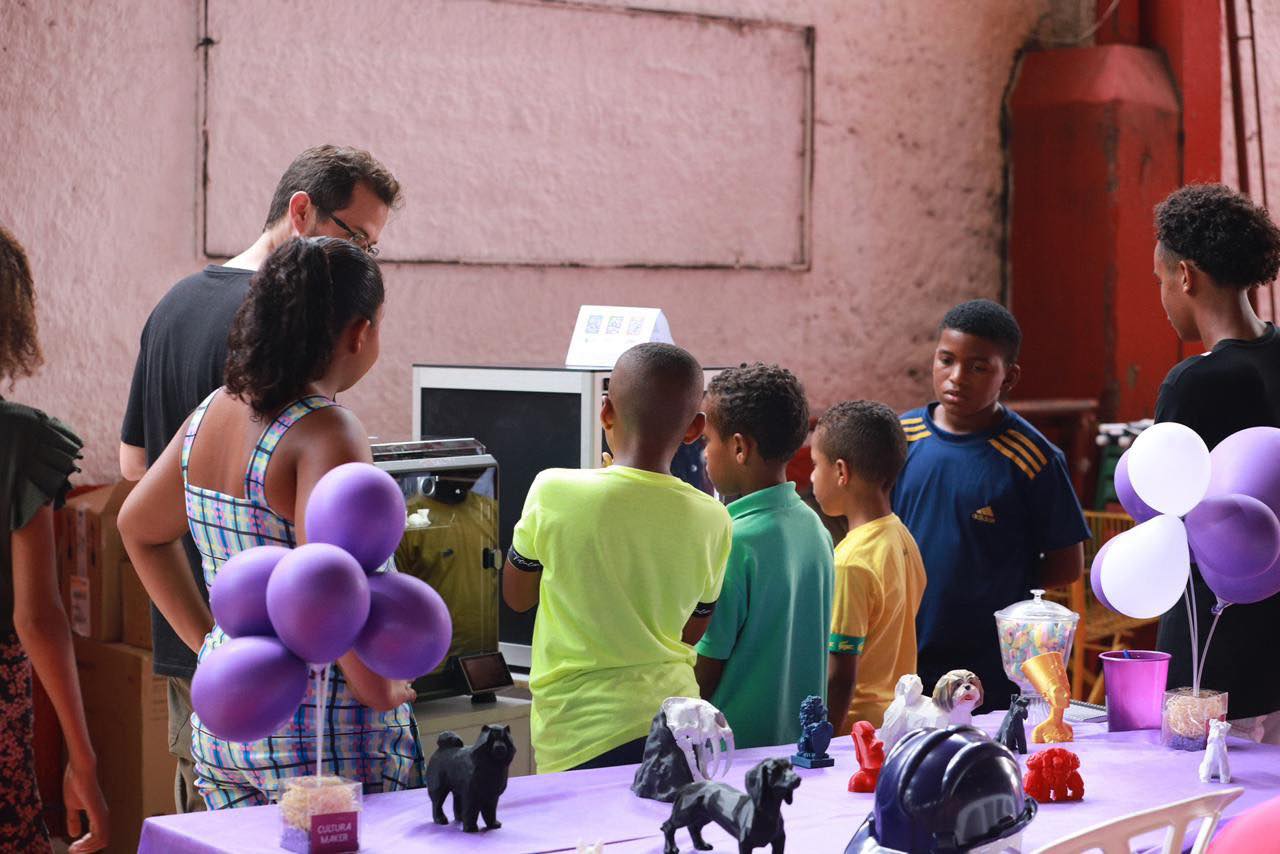
In this sense, the samba schools that build and maintain Brazil’s famous carnival have also thrived as contemporary quilombos. In order to keep alive Black knowledge, corporeality, music, and culture, they have propagated a pedagogy built on experience. This pedagogy is rooted in practical learning, with knowledge and understanding passed down through interactions with the elders within the samba school community. In preserving knowledge and ancestry, samba schools play a vital role in the construction of a more just and inclusive society.
“The samba school is a community process center. The festivities, the meetings to organize events, the space functions as a source of mutual aid. In this way, learning takes place through orality and life experiences, and knowledge circulates accordingly.” — Mauro Sérgio Faria, member of Portela’s Cultural Department
Connections Between Samba and Literature Gain Growing Momentum in Samba Schools
Beyond their traditional activities, samba schools have been launching literary festivals and other educational initiatives where Black protagonism is celebrated through lectures, storytelling, and book launches. The first of its kind was organized by the Portela Samba School in 2019 to integrate the community with its samba school through the sharing of knowledge.
2023 brought a wave of literary festivals to Rio de Janeiro’s samba schools, providing an opportunity to celebrate their memories and stories, their communities, neighborhoods, and in some cases introduce the community to its 2024 carnival theme. Portela, Mangueira, Salgueiro, Estácio de Sá and Unidos de Vila Isabel invested in activities promoting the right to literature and racial literacy over the past year, organizing literary festivals with discussions, lectures, poetry readings, exhibitions and workshops at their sites, in addition to plenty of samba.
These samba school festivals are important for promoting Black culture and education, offering opportunities for people to learn more about their history, literature, and art through intergenerational knowledge exchanges. These activities also promote racial literacy: knowledge of anti-racist practices that deconstruct the narrative of white supremacy. In the case of literature, this counternarrative emerges from the celebration of Black culture, valuing ancestry and creating Black protagonists and narrators with literary authorship.
The festivals have been an opportunity for Black writers to showcase their work to the public. This helps promote their visibility and disseminate Black literature. Through lectures and roundtables, workshops, and cultural activities, which may include dance, music, theater, and visual arts, literary festivals at samba schools have been gaining popularity in Rio de Janeiro.
FLiPORTELA: The Pioneer of Literary Festivals in Samba Schools
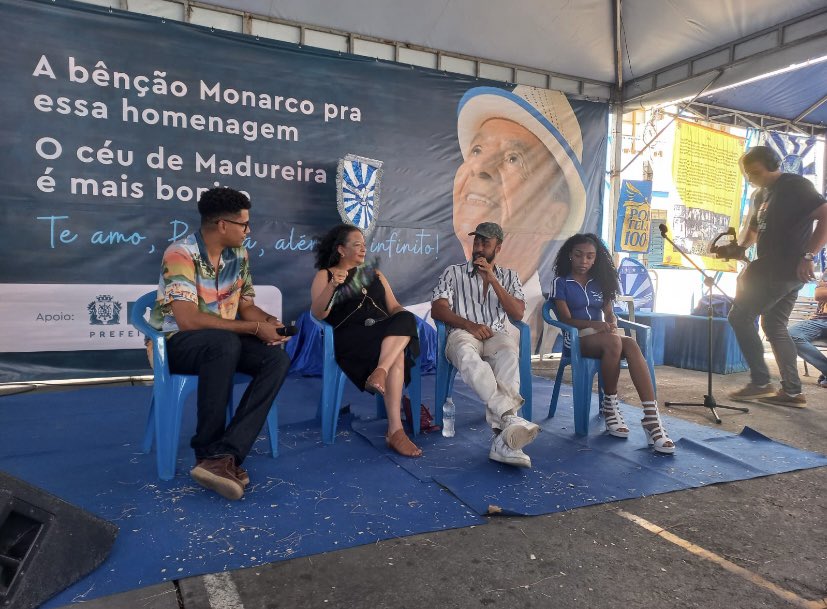
In 2023, the century-old samba school from Oswaldo Cruz and Madureira held another edition of the Portela Literary Festival (FLiPORTELA), from April 28 to 30. The event is already a tradition at the school. This time, it focused on A Color Defect, by Ana Maria Gonçalves, which inspired Portela’s theme for the 2024 carnival.
The book won the prestigious Casa de las Américas Prize and was featured on Folha de São Paulo‘s list as the seventh among 200 of the most important books for understanding Brazil over its 200 years since independence.
In A Color Defect, we follow the story of Kehinde, a Black woman who was kidnapped at the age of eight in the Kingdom of Dahomey, present-day Benin, and brought enslaved to Brazil.
In the book, the Kehinde narrates her life story, from her capture in Africa to her liberation. She recounts her life as an enslaved person: her loves and disappointments; her sufferings and journeys in search of one of her children; and her religion. She also shares how she obtained her emancipation letter and how she returned to Africa, where she became a successful entrepreneur. The character was inspired by a real woman, Luísa Mahin, who lived in Brazil in the 19th century. She was a religious and political leader and participated in the Malê Revolt, a movement of enslaved Muslims who fought for freedom.
“We conduct debates, discussions and exchanges in multiple languages on diversity, and on anti-racist and inclusive practices and projects.” — Rogério Rodrigues Santos, Director of Portela’s Cultural Department
The 2023 edition of the festival was structured to take place over three days. On the first day, Friday, the programming targeted children from public schools, with activities supported by the Municipal Education Department. The following days featured a diverse program open to the general public. FLiPortela is a shining example of success. Since 2019, it has brought together Black writers, artists, researchers, and educators, creating a space for resistance and affirmation of Black culture, building a fairer and more inclusive society.
In addition to the centennial Portela, the pioneer of literary festivals in samba schools, other groups have also been organizing literary events, an important step towards valuing samba culture and Afrocentric education in Rio de Janeiro.
Literary and Cultural Festival (FLIC): Celebrating 95 Years of Estação Primeira de Mangueira
In a similar effort, Mangueira held its first Literary and Cultural Festival (FLIC) on May 26 and 27, 2023, with the theme 95 Years Mangueira Samba School.
The festival’s program included activities for all ages and interests. For children and teenagers, there were storytelling sessions about Afro-Brazilian and indigenous culture, workshops and discussions on topics related to diversity and inclusion.
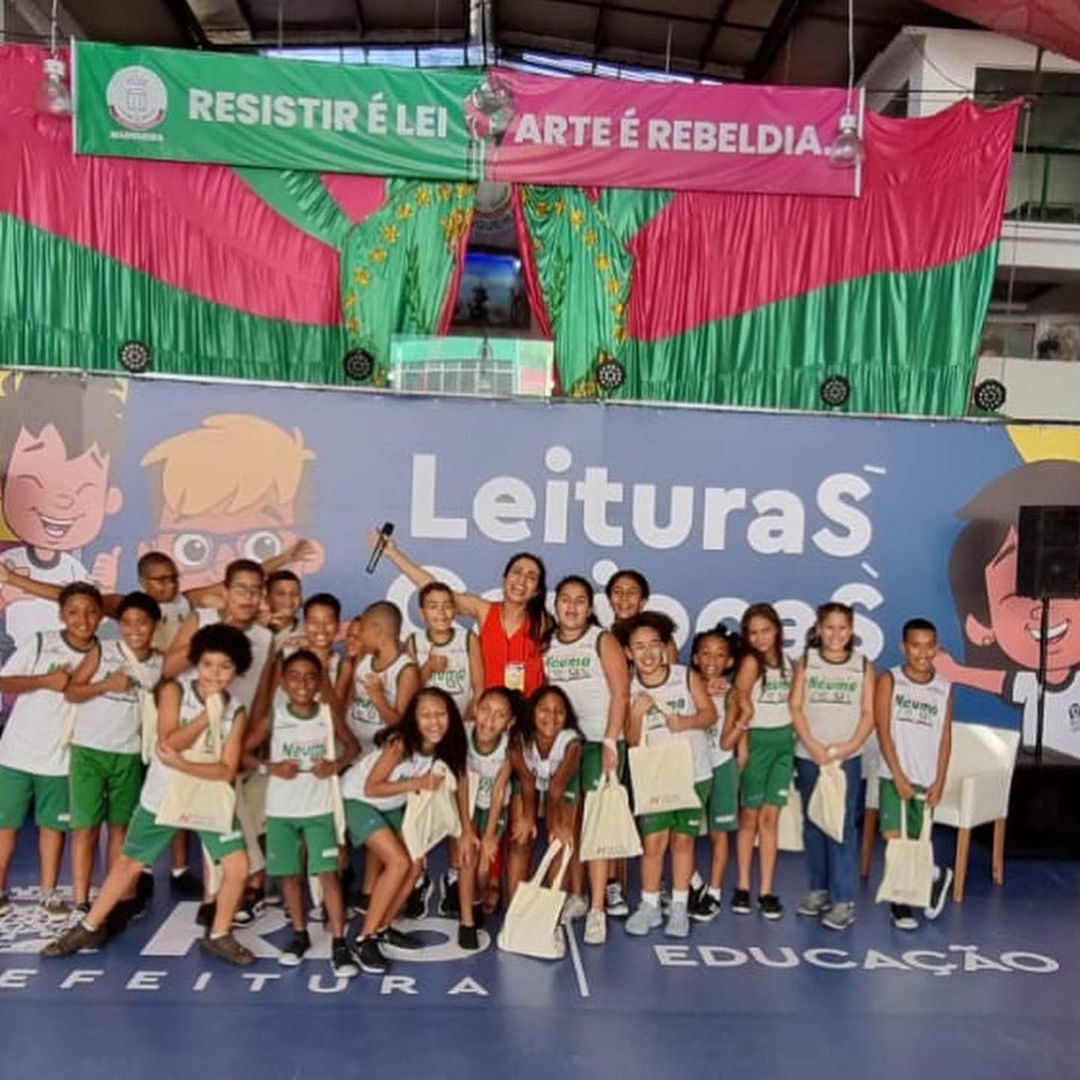
For young people and adults, there were poetry readings and workshops on creative writing and positive masculinity. The Free to Study booth addressed important topics for women, such as fighting gender-based violence, women’s health, and menstrual poverty. Feminine hygiene products were distributed for free to female students from the municipal school network who attended.
Salgueiro Literary and Cultural Fair: Endless Stories
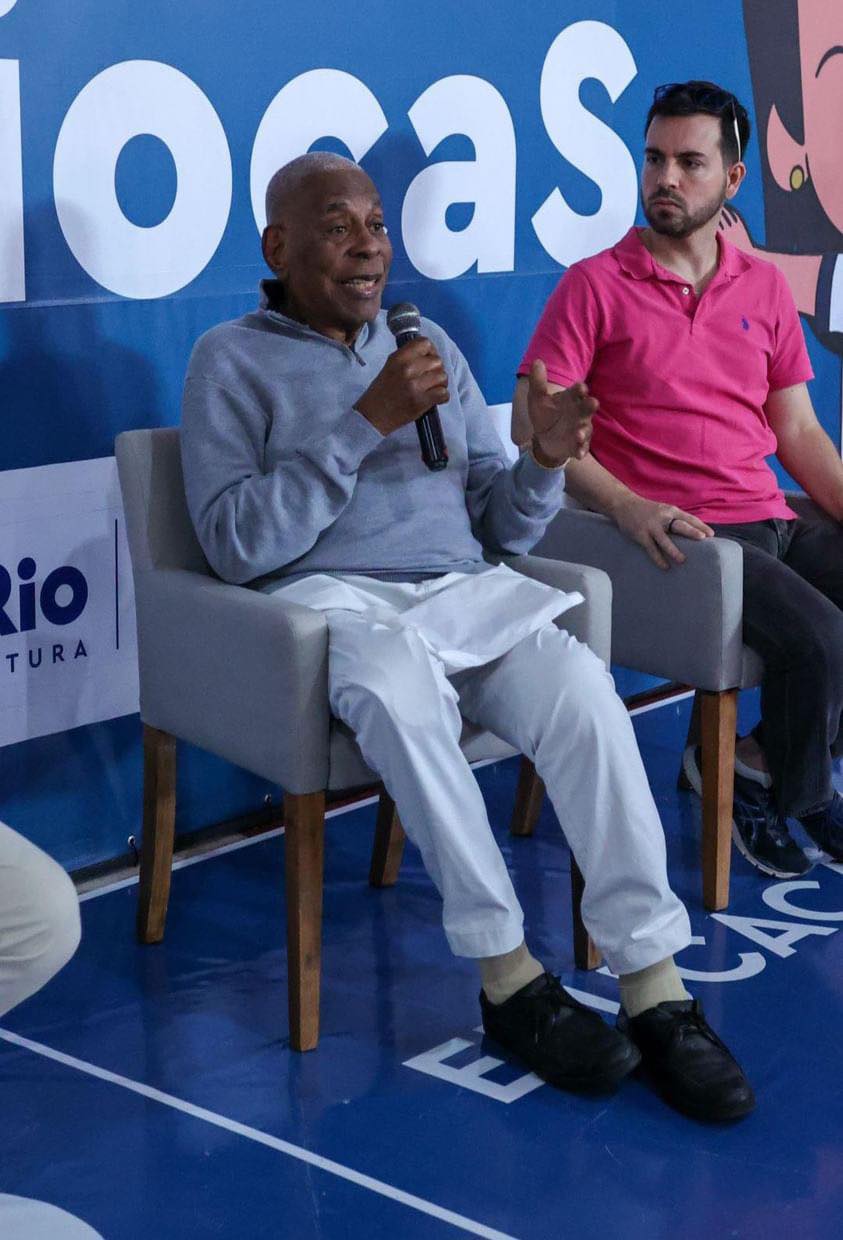
The Endless Stories Literary and Cultural Festival took place in Salgueiro between October 20 and 21. The event was organized by the Municipal Education Department, the samba school’s Cultural Board, and its administration. The program featured themes related to the Yanomami people, which will be the theme of Salgueiro’s 2024 carnival parade. Additionally, activities aimed at celebrating local culture were held, such as the Caxambu circle, a typical manifestation of Morro do Salgueiro.
“The cultural tradition among people of the diaspora was primarily oral… We’ve observed a growing production and dissemination of Black literature. These festivals bring together this knowledge to celebrate the stories that represent the origin of samba schools and all these cultures, previously seen as secondary. Samba schools, notably Salgueiro, have always been at the forefront of promoting the history of marginalized peoples.” — Marcelo Pires, Director of Salgueiro’s Cultural Department
Estácio de Sá’s Diversity Literary Festival
On October 28 and 29, 2023, the Estácio de Sá Samba School hosted the Rio Diversity Literary Festival. The event featured book exhibitors, primarily focusing on ethnic-racial themes. Over these two days, there were lecture series on literature, history, and the environment, along with discussion panels, storytelling sessions, and playful and technological activities geared towards children.
“Samba schools are places of diversity, where the elderly, children, and the environment are respected, talking about ancestry. At the festivals, this exchange happens through literature… In addition, literary festivals can encourage new writers, bringing racial literacy and a sense of belonging to that community, taking away the elitist view about [what is] literature.” — Bianca Ferraz, librarian and curator of the Rio Diversity Literary Festival
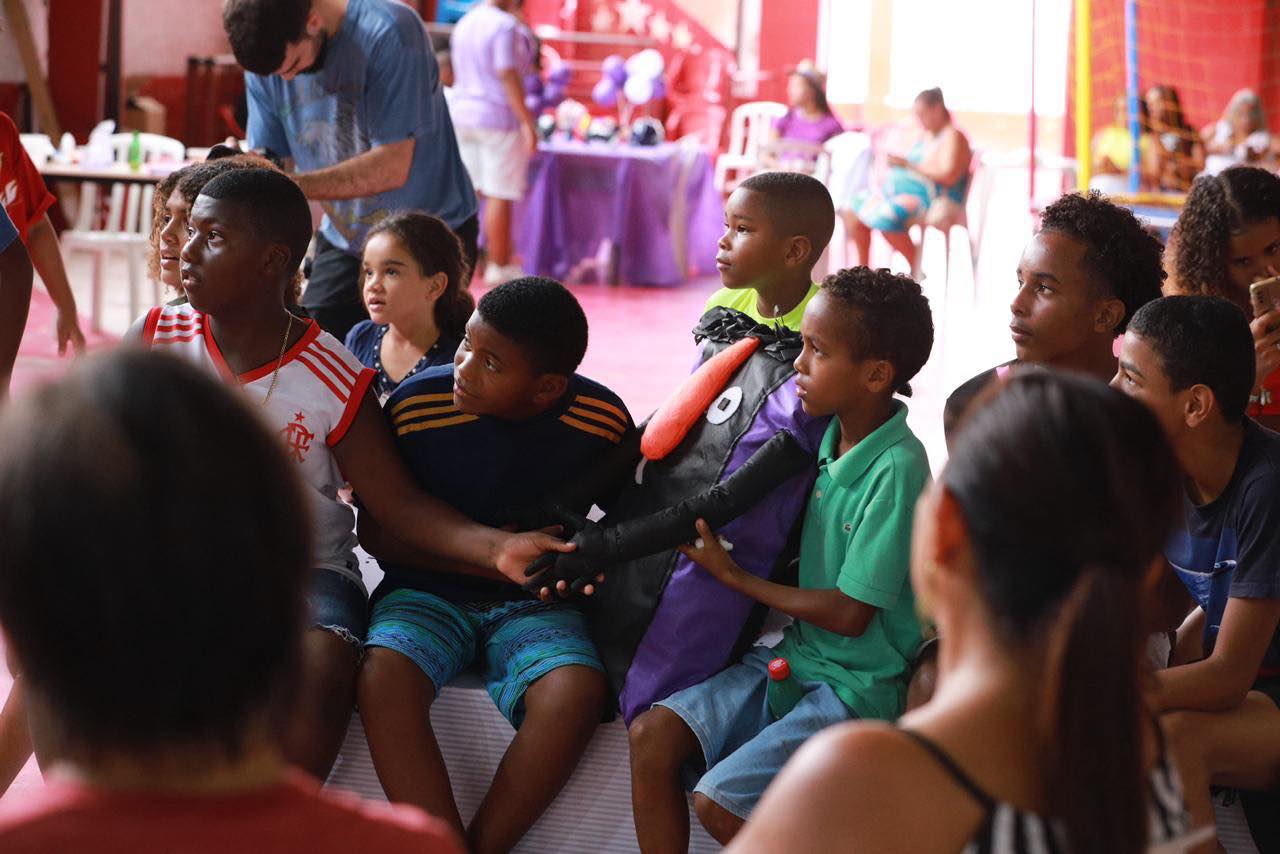
FLIVILA: A Mixture of Bossa, Samba and Literature
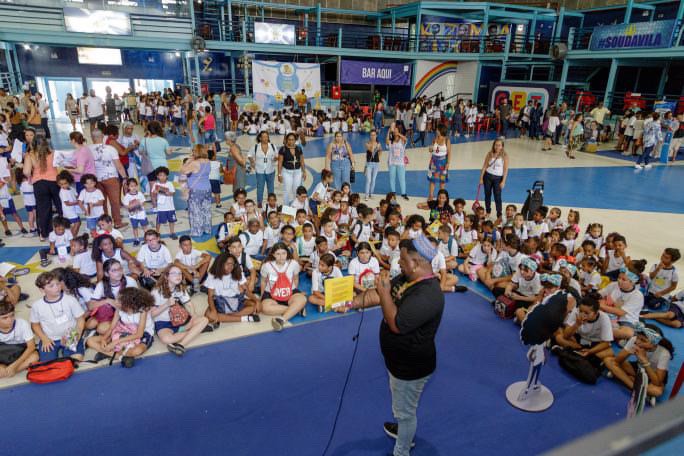
Wrapping up the 2023 samba schools literary festivals, Vila Isabel, in partnership with the Municipal Department of Education, held the Vila Isabel Literary and Cultural Festival (FLIVILA). The activities took place on December 1, 2023.
The program was based on the theme of the 2024 carnival: Gbalá, Journey to the Temple of Creation. A re-edition of the 1993 carnival parade, the theme discusses the climate crisis and the need for children to take the lead in saving the planet. According to Vila Isabel, the salvation of humanity lies in the hands of educated and socio-environmentally aware children. As the Vila Isabel samba goes: “children are Oxalá‘s hope.”
“Literature is multifaceted. It develops critical thinking, creativity, reading skills, and a broader understanding of the world. Through literature, we can enter multiple narratives… In samba schools, this significance transcends. We can open this door for the community, showing that literature serves as a path for social transformation, much like samba… showing that a samba school extends beyond carnival. We must bring more literary fairs and festivals to these areas to cultivate readers and, perhaps, writers!” — Tathiane Cristina Queiroz de Azevedo, Cultural Director of the Heirs of Vila, the children’s samba school of Unidos de Vila Isabel
Literary Festivals Turn Pages into Samba Beats
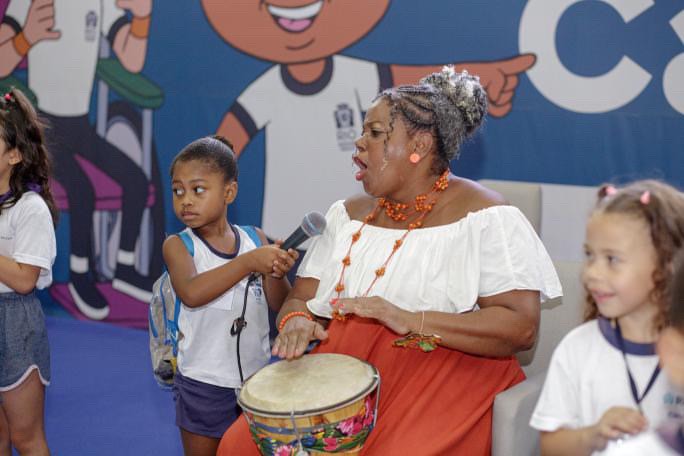
The literary festivals held by the samba schools in 2023 were a success. They brought together thousands of people of all ages and backgrounds, celebrating Afro-Indigenous Brazilian literature and culture. These events promote reading and writing, encourage access to culture and information, value Afro-Indigenous Brazilian culture, showcase Black authors and artists, help fight racism, and promote racial equality. Given the success and relevance of these festivals, it is natural to expect that similar events will take place in samba schools in 2024.
To ensure they remain relevant, it’s important for these events to continue to be inclusive and free or affordable. Racial literacy and the visibility given to Afro-Indigenous Brazilian cultures are essential for building a fairer and more equitable Brazil. Stay tuned to the social media channels of the samba schools throughout 2024 for information about new editions of the literary festivals.
About the author: Carol Marinho was born and raised in Complexo do Alemão, holds a master’s degree in Ethnic-Racial relations, and is an educator and journalist.
